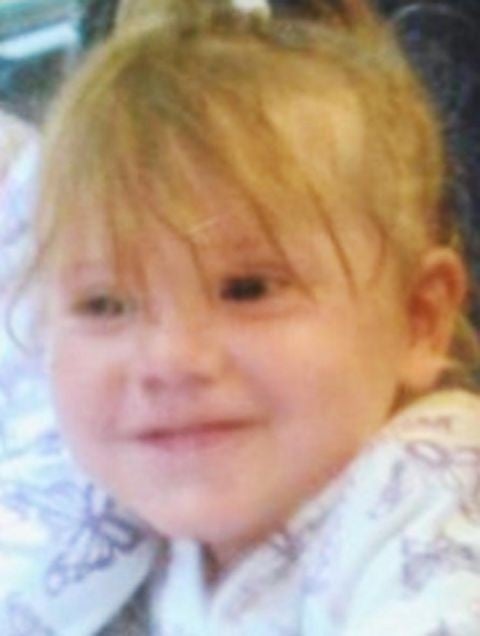Emergency services failed girl with infection, says coroner

A two-year-old girl who died after she was wrongly diagnosed with swine flu was failed by emergency services, a coroner has said.
Georgia Keeling, from Norwich, died from a meningitis-like infection following the incorrect diagnosis at the height of the 2009 national pandemic.
The inquest in Norwich heard that paramedic Patricia Perfect had examined her at home but sent an ambulance away because it was "another case of swine flu".
Four hours later, following a second 999 call, the toddler was rushed to hospital where she died.
Returning a narrative verdict today, Norfolk coroner William Armstrong ruled Georgia died following an "erroneous diagnosis" and the fact she was not immediately admitted to hospital reduced her chances of survival and contributed to her death.
He said: "She died from a condition that was previously undiagnosed and the examination by Miss Perfect was inadequate and deficient and there was a failure to recognise the severity of her condition.
"Is is possible Miss Perfect was over-influenced by the fact there was at the time a prevalence of swine flu?
"There is no doubt at all that Georgia should have been sent to hospital immediately and she would have had a better chance of survival."
He added that the East of England Ambulance Trust had already taken action to reduce the likelihood of future tragedies.
Earlier in the hearing it was suggested Georgia's death on August 4, 2009 was the result of meningitis.
Today, pathologist Xenia Tyler said a post-mortem showed she died from a group A streptococcal infection, a rare form of blood poisoning which can develop into meningitis.
Georgia was first seen by Miss Perfect at about midday on August 4, 2009 following a 999 call.
Her mother, Natasha Keeling, said she had initially felt relieved that she had been diagnosed and given the swine flu medication Tamiflu.
Georgia's father, Paul Sewell, said he had been reassured it was not life-threatening.
But her condition continued to deteriorate and Ms Keeling again dialled 999 shortly before 4pm. Georgia was pronounced dead at the Norfolk and Norwich University Hospital at 4.24pm.
Professor John Kroll told the inquest that, on the balance of probabilities, it was likely Georgia would have survived if she had been taken to hospital sooner.
He added: "The diagnosis of swine flu was clearly inappropriate.
"The circumstances here go far outside what any clinician would diagnose as swine flu. If it was swine flu, it was swine flu with complications."
Dr Jeffrey Perrin, a paediatric and intensive care consultant who examined the circumstances around her death, said "red flag" warning signs were missed.
He added: "I would not necessarily have expected an emergency care practitioner to have diagnosed the illness but it is more important to recognise the severity of the condition.
"The failure of an emergency care practitioner to recognise the severity of Georgia's illness resulted in her having a reduced chance of surviving the illness."
Miss Perfect yesterday told the hearing she regretted the incorrect diagnosis but said "most clinicians" would have made the same mistake given the unprecedented circumstances.
She described how medics had been "distracted" by the pandemic.
"Swine flu was at the forefront of everybody's mind. Had that not been a factor I would have been looking at other reasons," she said.
Speaking outside the inquest, Mr Sewell said the last three years had been like "going through hell".
But he said the family accepted that the ambulance service had learnt from the mistake.
He added: "We were failed by one person and we can't blame the whole NHS for that."
He and Ms Keeling issued a statement saying: "Nobody knows a child like their parents and we are saddened that despite our best instincts the ambulance service failed to provide adequate care to Georgia.
"We are pleased the ambulance service has apologised for the failings of its emergency care practitioner - we are only sorry that it has taken three years."
PA
Subscribe to Independent Premium to bookmark this article
Want to bookmark your favourite articles and stories to read or reference later? Start your Independent Premium subscription today.

Join our commenting forum
Join thought-provoking conversations, follow other Independent readers and see their replies